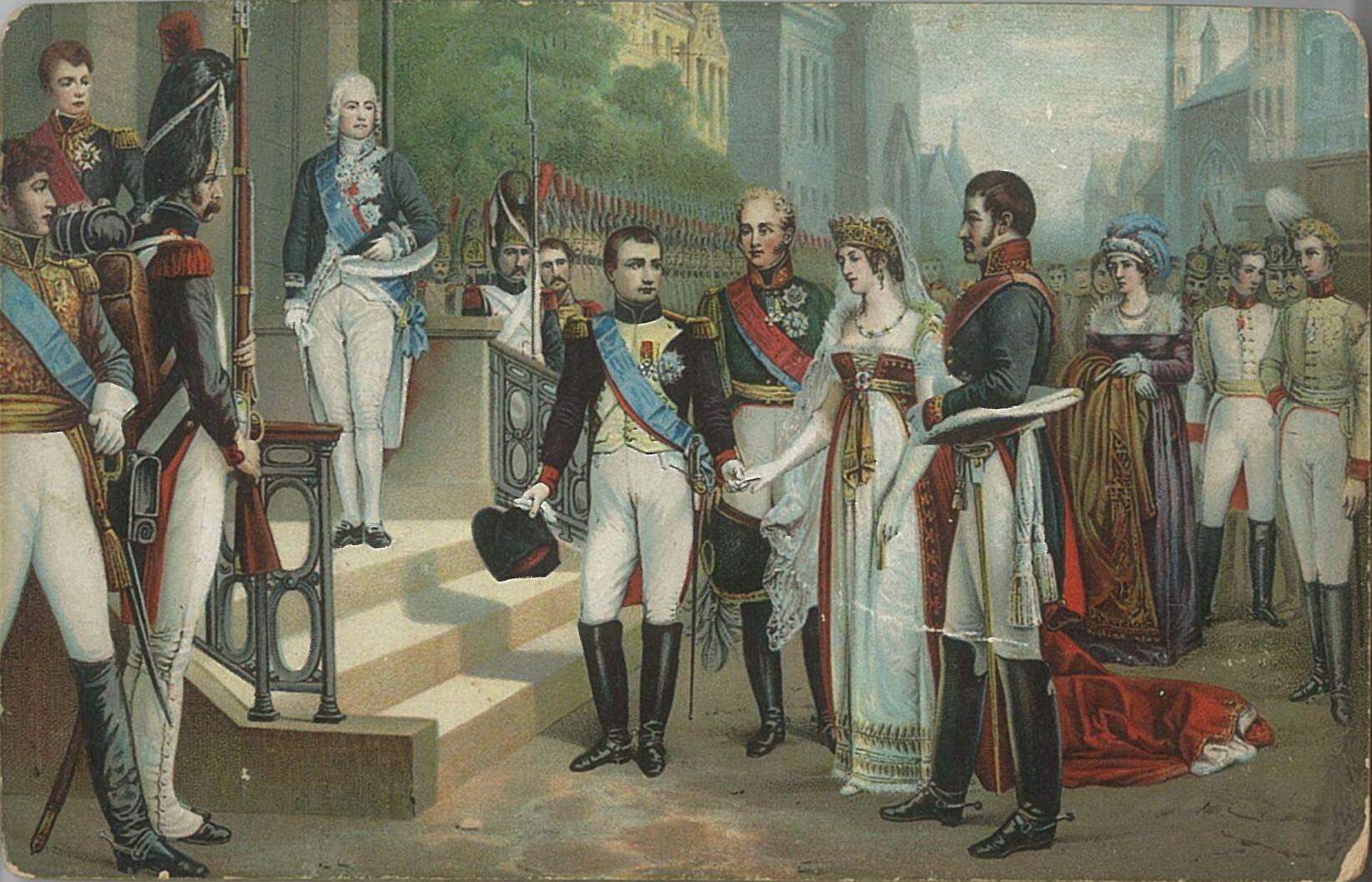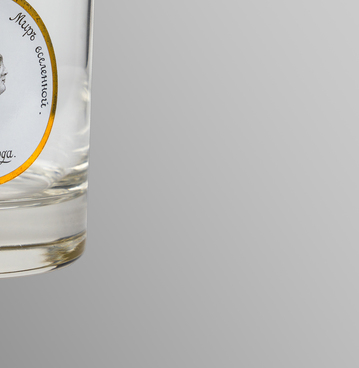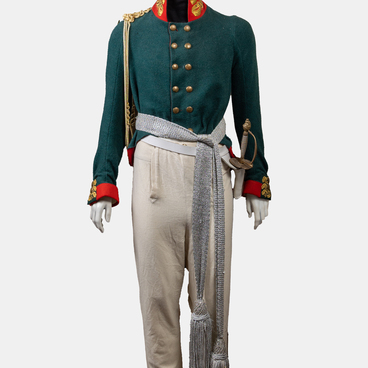On July 6, 1807, at 8 p.m., Queen Louise, joyful and hopeful, rode with Marshal Berthier in Napoleon’s carriage to a gala dinner. She was in high spirits. After a long time, Louise could laugh a little again. The presence of a large number of guests — apart from Alexander I and the king there were also Prince Henry of Prussia, Grand Duke Constantine, King Joachim Murat, Crown Prince Ludwig of Bavaria, and Countess von Voss — added a more public atmosphere to the meeting with Napoleon. And were it not for the tragic circumstances that underpinned that meeting, Louise might have assumed that she was in brilliant evening society. Once again, she was shining with her incredible beauty. In her bright red gauze gown embroidered in gold, she looked especially young and beautiful.
The meal went off in a very pleasant atmosphere. Napoleon was very attentive to Queen Louise and especially friendly with her maid of honor. After the meal, Napoleon took a rose from a nearby vase and gallantly handed it to the queen. Louise hesitated at first, but remembering her diplomatic errand, smiling, said: “Together with Magdeburg, is it not?” But the Corsican replied sharply, “I must point out to Your Majesty that it is I alone who offers, and you are free to take it or leave it!” Napoleon asked the queen how Prussia could possibly dare to engage in this war, to which Louise proudly replied, “Sire, the glory of Frederick the Great has led us astray.” Napoleon was very polite this time too, but even now he made no definite promises. He was masterfully evasive. “She opened her soul to me. All her manners were pleasant, but I was determined to stand my ground, though I had to control all my attention so as not to bind myself with any obligation or make any ambiguous promises, because of the fact that I was also closely watched, especially by Emperor Alexander”, he said on the island of St. Helena.
In spite of this, at the end
of the day Louise was filled with her highest hopes. At the end of the meeting,
Napoleon said to her: “Madame, I have always been told that you interfere in
politics; now, after all I have heard, I regret that you do not.”


